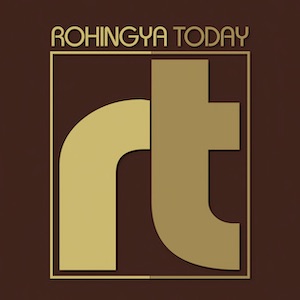
Rohingya Today
Rathedaung — The Rohingya 'Genocide' survivors in three remaining villages in Rathedaung Township are increasingly facing the risks of starvation as Myanmar authorities have confined them in their villages and international aid agencies cut off humanitarian assistances, reliable sources report.
Of the total 'twenty four' Rohingya villages that had existed in Rathedaung Township before June 2012, only three villages — namely 'Sin Kone Taing Muslim' village, 'Kan Seik' hamlet from 'Auk Pho' village tract, 'Aaka Taung' hamlet from 'Ye Khone Taing' village tract — in the northern part of the township have survived the violence and onslaught of arson attacks by the Myanmar military and security forces along with Rakhine extremists since then. There is an estimated population of 5,500 survivors in these three villages.
For their survival since then, these 5,500 genocide survivors along with other approximately 4,500 survivors living across two partially burnt-down villages — 'Anauk Pyin' and 'Nyaung Pin Gyi' Muslim village — in southern Rathedaung have worked as day-laborers in the farms owned by neighbouring Rakhine villagers.
As the fightings between the Myanmar military and the Arakan Army or AA (a Rakhine Rebel Group) continue to intensify, thousands of villagers have been displaced, mostly being Rakhines this time. And the Myanmar authorities have restricted the movements of UN Organizations and other International Aid Agencies excluding World Food Program (WFP) and International Committee of the Red Cross (ICRC) in five townships including Rathedaung in northern Arakan State.
As a consequence of that, the remaining Rohingya villagers in Rathedaung have found themselves more confined; and their access to farming and other livelihood cut off. Amidst all these, according to the surviving villagers, the WFP and the ICRC providing them humanitarian assistances have also cut off their assistances.
"We had shared very good relationships with our neighbors, Rakhines, before June 2012. But the state-sponsored violence in June of the year ruined it almost all. Our villages were burnt down in three phases since then: in 2012, 2016 and 2017 respectively. Only three villages have survived. Besides, the government has restricted our movements and banned us from travelling even from one township to another (such as to Maungdaw and Buthidaung) since 2012.
"We have no works to do to earn our daily meals. We have no access to our livelihoods. Many of us used to work as day-farming laborers for the Rakhine farmland owners in the neighboring villages. After the fightings between Tatmadaw and AA started, the authorities ordered us not to go to the Rakhine villages for works, either. Unfortunately, ICRC has also stopped providing us food rations and assistances.
"Now, it's like they are making us to face starvation and die. We are neglected. If this continues, we all may die", worryingly said a Rohingya villager in Rathedaung.
The WFP provided food rations to the violence-hit Rohingya villagers in Rathedaung from June 2012 until August 2017 violence. After that, the ICRC replaced the WFP to provide food rations to the 5,500 Rohingya Genocide survivors in northern Rathedaung. Since then, according to the villagers, the ICRC has provided them rations once in two months and total five times, and the last time being in October last year.
[Reported by Yan Naing; Edited by M.S. Anwar]








